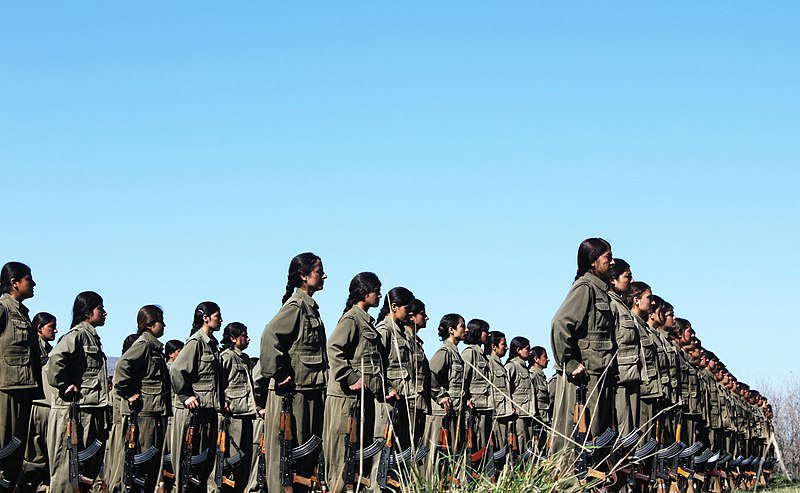World
Europe’s Dilemma: Is Turkey’s Fight Against Terrorism Being Misjudged?
By Jake Beardslee · July 5, 2023
In brief…
- Turkey's fight against the Turkish Worker's Party (PKK) faces criticism from some European organizations, who question the effectiveness of the operations without concrete evidence.
- Experts highlight the double standards exhibited by certain European voices, with some MPs openly supporting the PKK despite its terrorist designation by the US and the EU.
- The PKK holds significant presence in Europe, with over 14,000 supporters in Germany.

Ankara, Turkey - In a recent meeting of the UN Security Council, Turkey’s envoy emphasized the nation’s commitment to defending itself against terrorist organizations, specifically highlighting the Kurdistan Workers’ Party (PKK)’s attacks on Turkish soil. Turkey’s Defense Ministry also reported conducting airstrikes on PKK hideouts in northern Iraq as part of its ongoing operation against the group. The country’s fight against PKK terrorism has faced scrutiny, with critics raising concerns about the effectiveness of Turkey’s efforts. Ahmet Keser, an associate professor at Hasan Kalyoncu University, and Klaus Jurgens, a European affairs analyst, shed light on the challenges and double standards surrounding Turkey’s fight against the PKK in an interview with TRT World.
Keser expressed frustration with the European Council’s criticism of Turkey’s operations against the PKK. He highlighted the lack of concrete evidence provided and the inclusion of the PKK as a terrorist organization on their list. Keser stated, “On the one side, they include PKK as a terrorist organization in their list. On the other side, they usually criticize Turkey’s operations against the PKK terrorist organization in any kind and without showing any kind of concrete evidence. And this is one of the examples of that.”
Jurgens pointed out the double standard exhibited by some European voices. He mentioned Frederic Mathieu, an MP who voiced support for the PKK despite the group being designated as a terrorist organization by the US and the European Union. Jurgens criticized the media’s role in amplifying these voices and emphasized the need for balanced reporting. Jurgens stated, “If no one would listen, they would basically be nothing but a footnote in history. But we have a very strong, unfortunately, in the mainstream media. Whatever Turkey does is wrong. Whatever they do to fight terror is wrong. This is against human rights. And this group is influential, perhaps not the number of lawmakers, but the feedback and this fertile soil they find in the media. This is what worries me.”
The discussion also touched upon the European Union’s response to the PKK. Jurgens cited reports of the PKK’s significant presence in Germany, with over 14,000 supporters, and their active operations within the European Union. He called for greater action from law enforcement agencies to combat the PKK’s criminal activities and highlighted the fear within the diaspora community, which hinders their willingness to speak out against the group. Jurgens warned, “Law enforcement can actually do something because they know about it. They should not turn a blind eye anymore because one day, God forbid, one day, if a terrorist does not have any targets anymore in their original countries where they originally hail from, they might just turn against those very people who gave them a safe haven. God forbid this is an international terror threat. PKK and Europe should please, please wake up.”
The conversation concluded with a consideration of the impact of recent events on Turkey’s stance towards Sweden’s NATO membership. Keser mentioned the burning of the Quran in Sweden and its potential effect on Turkey’s approval of Stockholm’s bid to join NATO. He highlighted the dilemma between hate crimes and freedom of expression, urging Sweden to address such incidents as hate crimes to foster a more inclusive society. Keser asserted, “I think all these kind of events negatively impact Turkey’s stance related to the membership of Sweden to NATO as well because here lies the dilemma between the hate crime and freedom of opinions.”
As Turkey continues its fight against PKK, the discussions highlighted the challenges faced by the country and the persistent alleged double standards it encounters. While critics question Turkey’s operations and call for greater international support, others argue for a more balanced perspective that takes into account the PKK’s criminal activities and the need for united efforts against terrorism.